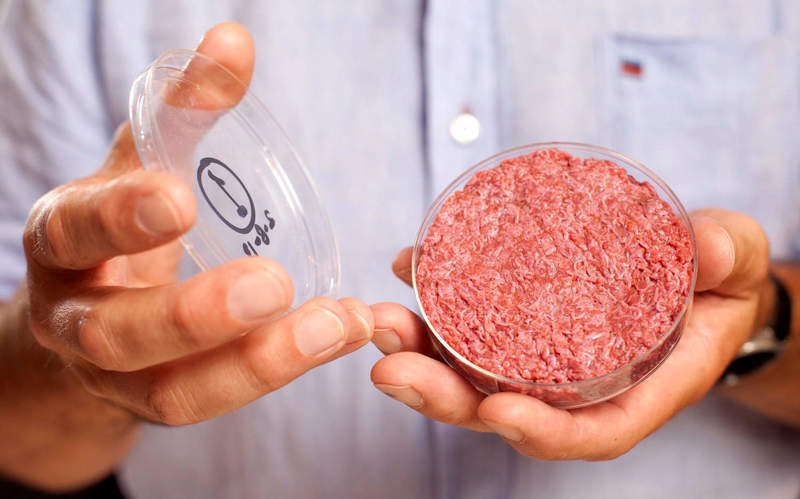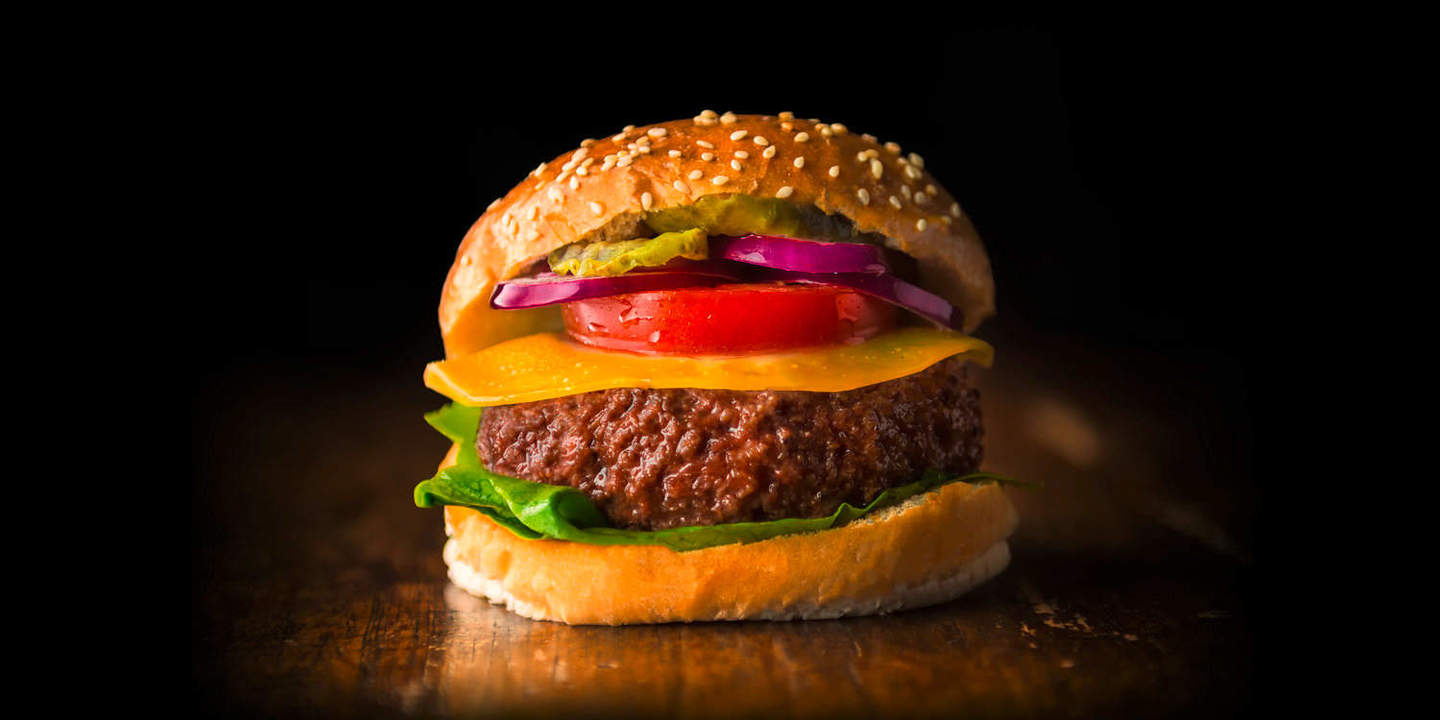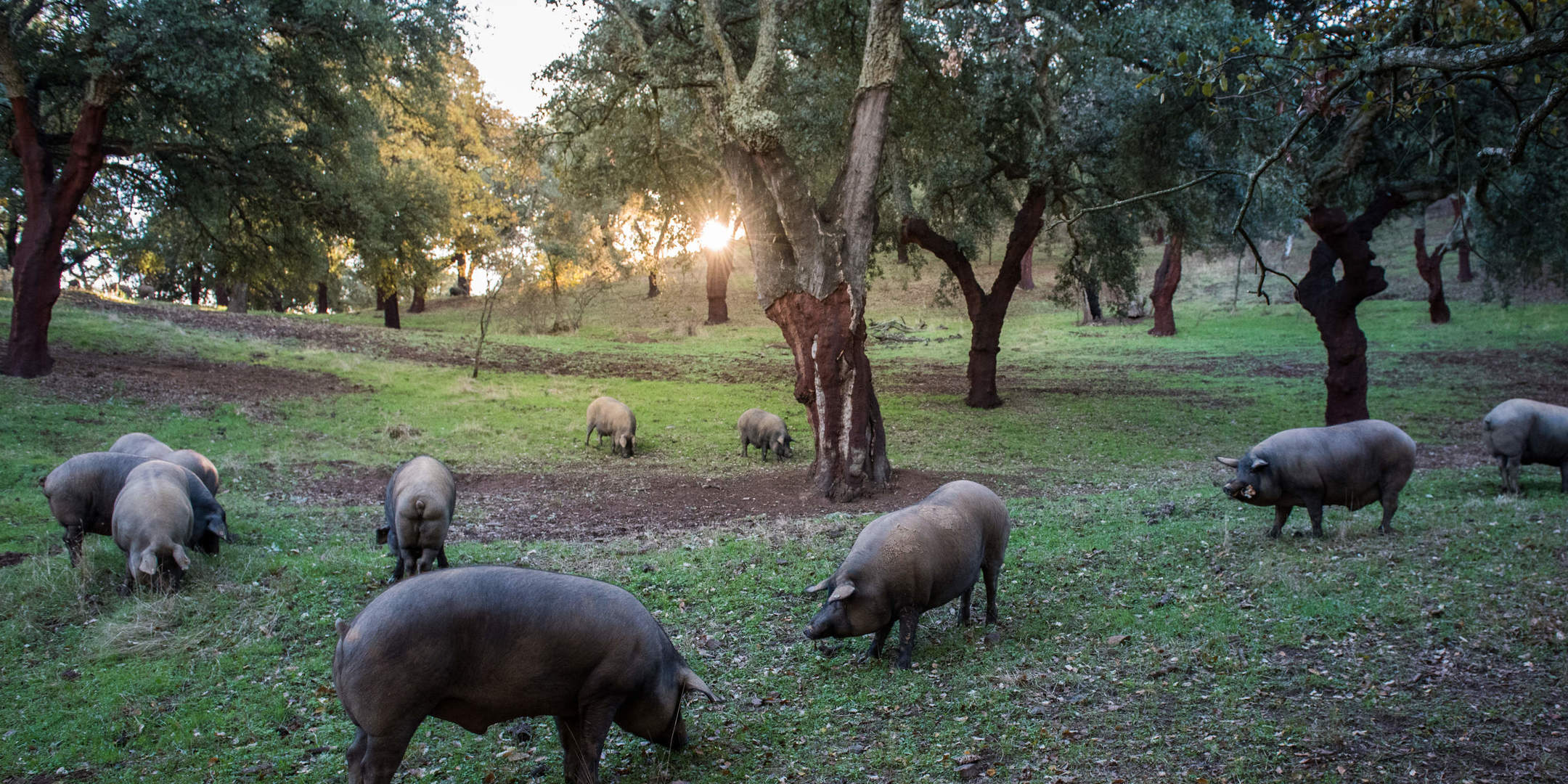The Bell Food Group participates in Mosa Meat
In July, the Bell Food Group invested in the Dutch start-up Mosa Meat, the world's leading company for cultured beef. In just a few years it resulted in an alternative for those consumers who question the consumption of meat for ethical reasons.
What was basically inconceivable for many people ten years ago has become a reality: a newly developed method makes it possible to produce cultured meat without having to slaughter a single animal. The method involves taking a few cells from an animal in a biopsy and growing them into muscle meat in a laboratory. The growth process is in principle exactly the same as the animal’s normal muscle growth with the exception that cultured meat is grown in the laboratory outside of the animal. Accordingly, cultured meat is no different to conventional meat with regard to structure and composition.
Dutch start-up Mosa Meat is a leader in the research and manufacture of cultured beef. The Bell Food Group announced an investment of two million euros in the upcoming enterprise in July 2018. It is an investment with foresight for the Bell Food Group; as CFO Marco Tschanz says: «We see cultured meat as an alternative for those consumers who question their consumption of meat for ethical reasons. It also represents an opportunity to meet the increasing demand for meat in a sustainable manner.»
The investment in Mosa Meat secures the Bell Food Group early access to an interesting alternative production method for meat. In addition, the Bell Food Group supports the development and research work with its know-how as one of Europe’s leading meat processors.
Cultured meat could in future represent an additional alternative to conventional meat production. The prerequisites are indeed very promising. Professor Mark Post, co-founder and head of research at Mosa Meat, presented the world’s first burger made of cultured meat in London in 2013. Production costs at the time were around USD 325.
Thanks to further developments in the manufacturing process, Mosa Meat has now moved well away from these price realms. However, producing cultured beef is still very time-consuming and expensive. Mosa Meat will therefore focus on developing a proprietary production process over the coming years aimed at producing cultured beef in larger volumes at a reasonable price. The goal is to be able to offer burgers for around CHF 10.00 by the year 2021.
How is cultured meat produced?
In contrast to conventional meat, cultured meat does not grow inside the animal but through tissue cultivation in the laboratory. This requires extracting stem cells from animal muscle, for instance from anaesthetised cattle, by way of a biopsy.

A bioreactor takes charge of cell growth, in the same way it is used in the production of cheese and beer. The cells inside the bioreactor multiply in the same way as they would inside the animal. A small sample can lead to the generation of trillions of cells. These cells are then used to develop muscle cells in the next process step. These cells grow and form muscle strands over time. The end product cannot be differentiated from conventional minced beef under the microscope. A sample taken from a single cow is sufficient for 800 million muscle strands – enough to produce 80,000 Big Macs.

